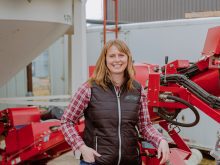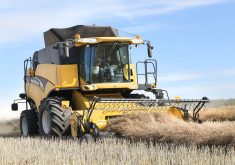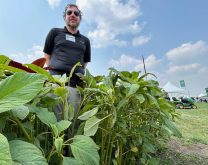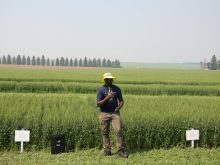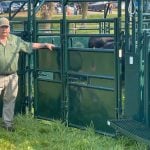PORTAGE LA PRAIRIE, Man. – Manitoba hog producers want to know why the agency that sells most of their hogs has done an about-face on the issue of vertical integration.
Producers at a Manitoba Pork district meeting here said they’re worried about vertical integrators taking control by pushing independent producers and family farm operations out of business.
Ben Wipf, a former Manitoba Pork director who runs a 12,000-sow operation in Ridgeville, Man., said Manitoba Pork has been against vertical integration in the past, and farmers who worry that has changed are mistaken.
Read Also
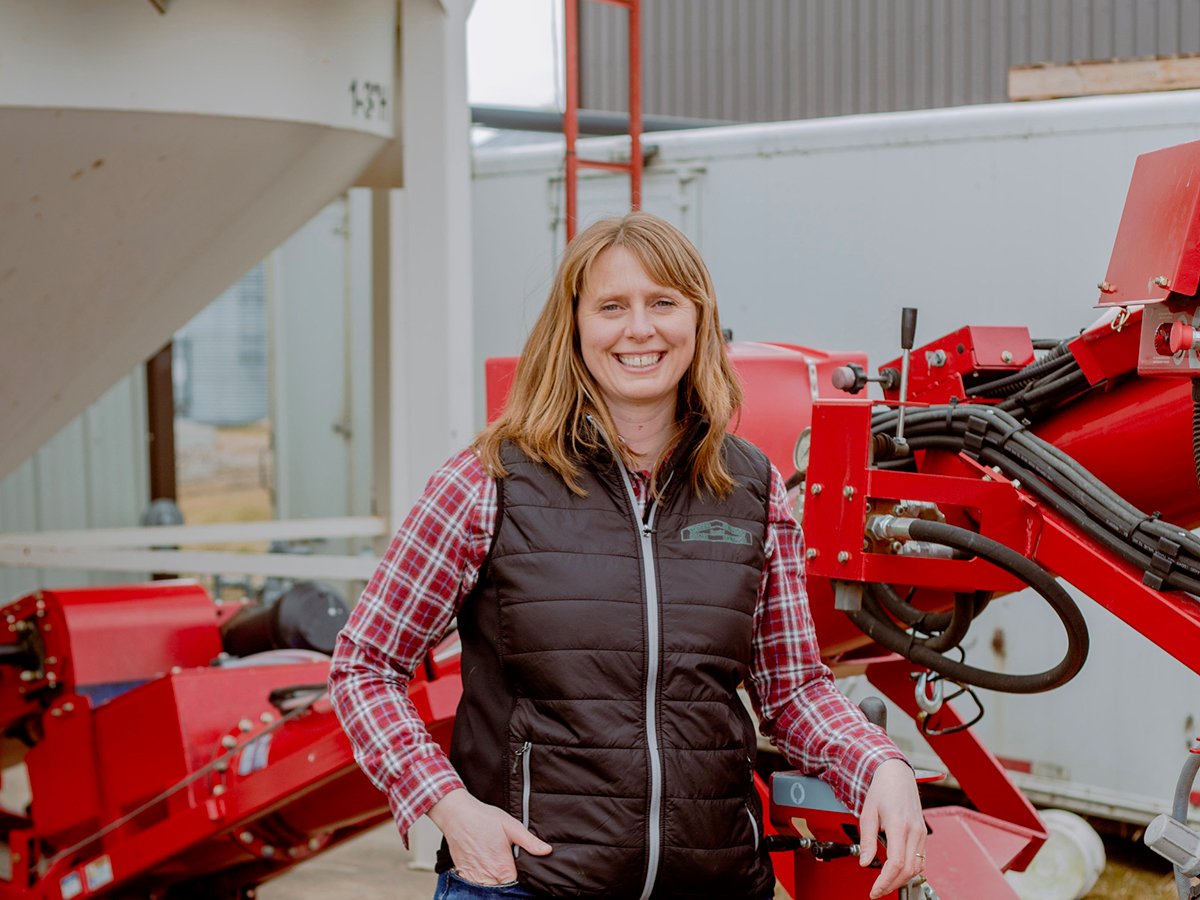
Weigum’s work with Alect Seeds earns her Alberta’s Outstanding Young Farmer award
Three Hills farmer earns Alberta’s Outstanding Young Farmers award through marketing of Alect Seeds to bring the best varieties and crop types to their customers and improve the quality of the land they farm.
“They’re misinterpreting the program because they’re worried they are going to lose control.”
In vertical integration, large companies control all aspects of production from the type of pigs, to type of feed, to the final sales price.
The agency recently announced it will partner with Paterson Grain in setting up Dynamic Pork, the province’s first network contracting hog farming operations.
At the top of the new structure sits Dynamic Pork Corp., owned 50-50 by Paterson Grain and Manitoba Pork. Under the corporation is a network of investors that owns the animals and contracts out for services and feed at a set rate. The three levels under the investment network include farrowing barns, finishing barns, veterinary services and feed mills, each of which will contract services on a fee basis.
Individual farmers will own the barns and may also be investors at the network level, but don’t have to be.
Profits will be paid to investors as dividends once pigs are marketed.
Some producers in Portage said they’re skeptical because vertical integration companies such as
Puratone and Elite Swine will be welcome to buy into the new network companies.
Questions were raised when producers learned Manitoba Pork contributed $100,000 to a feasibility study into the project.
“I thought anything left over was supposed to come back to producers,” said one farmer participant.
Manitoba Pork chair Gerry Friesen said farmers need to understand vertical integration and network contracting are two different business arrangements.
Network production means the financing is split between the building owner/operator and the owner of the animals to allow younger farmers to get into the business without having to come up with large sums of capital.
Wipf said many producers just don’t understand how the new network system works. He’s signing up as soon as a network starts in his area.
“I’ve got control over where my hogs go in my agreement, that’s why I’m not concerned,” he said.
“The smaller producers get a chance to get involved and the family farm has a chance to exist.”
Since the announcement of the new partnership with Paterson, Friesen said one banking institution has called with a proposal to act as the sole lender for the networks.
He also said a model business plan for how the network contracting system will work will be presented at Manitoba Pork’s annual meeting in Brandon April 14.




